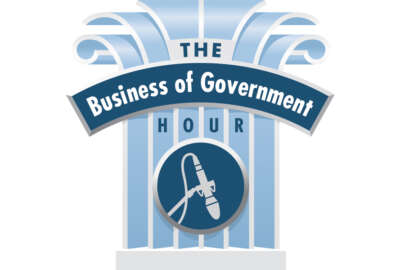For the Biden administration and many agencies, hiring entry-level talent is the goal of 2022.
The effort started last year, when the General Services Administration and the administration launched the U.S. Digital Corps, a new program designed to attract entry-level tech talent to the federal government.
In 2022, GSA will focus on strengthening the talent pipeline of entry-level acquisition professionals, said Traci DiMartini, the agency’s chief human capital officer.
GSA is partnering with the Office of Management and Budget and the U.S. Digital Service to develop better hiring assessments for federal acquisition professionals, and they’re using the Subject Matter Expert Qualification Assessment (SME-QA) process to do it.
The Biden and Trump administrations have used the SME-QA process, a method that relies on subject matter experts to vet and screen candidates in a particular field, to hire data scientists, customer experience professionals and others in recent years.
“We are trying to work closely with our partners at OMB and OPM to have a delegated examining unit certificate just for the acquisition series, where GSA will get first crack at all the hires,” DiMartini said. “Then we want to share them with other agencies, so we can really infuse some strong contracting talent across the government.”
GSA is also partnering with the Office of Personnel Management’s HR Solutions to share certificates for entry-level acquisition talent, DiMartini said.
“We are going to encourage talent from all sectors, so hopefully we’ll get highly talented veterans and individuals with disabilities, and we’ll get new college graduates or people with master’s degrees,” she said. “We really want to open it up, because we believe there are people who have the skills that we need to become solid contracting professionals in the federal service. There’s a desperate need to create that pipeline, because it is an in-demand occupation. It’s something that you can’t just learn in one year, so we need people who are willing to come in at the ground-level and learn – and learn from the best. The best employees in acquisition are at GSA.”
DiMartini said GSA will tap into detail assignments, both through the President’s Management Council and White House Leadership Development Programs, to bring in talent from other agencies. The goal, she said, is for federal employees from other agencies to learn how GSA operates, take those experiences back to their home agencies and share their own perspectives with GSA as well.
“Sometimes it’s not just [about] advancing each rung on the grade scale,” she said. “Sometimes it’s moving over and learning a whole new skillset, so you can become more marketable. You can become more competitive within your home agency but also broaden your opportunities to move to another agency. People should look at their federal career as something they’re doing to serve the entire federal government.”
Like many agencies, GSA is expanding and exploring hybrid work models, where more employees will telework or work remotely on a more frequent or near-permanent basis. DiMartini said those practices will allow GSA to retain more of its employees for longer periods of time and attract that entry-level talent it’s so interested in finding.
“At GSA, part of the battle we feel we have won is at least being open to it,” she said. “We are never, ever going to compete with the private sector if we say, ‘Yup, everyone needs to come in five days a week.’ It’s just not going to happen. We have proven we can work in this environment. Our customer satisfaction scores have steadily increased. Our employee satisfaction scores have steadily increased. We’re seeing our retention rates stay high.”
Expanding training and development opportunities for both senior leaders and non-supervisory employees is another retention tool, DiMartini said.
“We need people who are emotionally intelligent, who can adapt to change, who are willing to learn new skills and to actually do the work that is needed in the agency at that time and not just say, ‘That’s not on my [position description]; I’m not doing it,’” DiMartini said. “But at the same time we owe an obligation to the workforce to actually provide that training.”
GSA offered executive coaching to all members of the agency’s Senior Executive Service last year, and more than 70% of those leaders took the offer, DiMartini said.
It’s why GSA will expand executive coaching to its supervisors, managers and non-supervisory staff this year through a contract with the Treasury Executive Institute.
“You have to stay current, you have to stay fresh and you have to model good behavior when it comes to learning and development,” she said. “We also want to spread those opportunities down to managers, supervisors and aspiring managers and supervisors.”
Copyright
© 2024 Federal News Network. All rights reserved. This website is not intended for users located within the European Economic Area.





